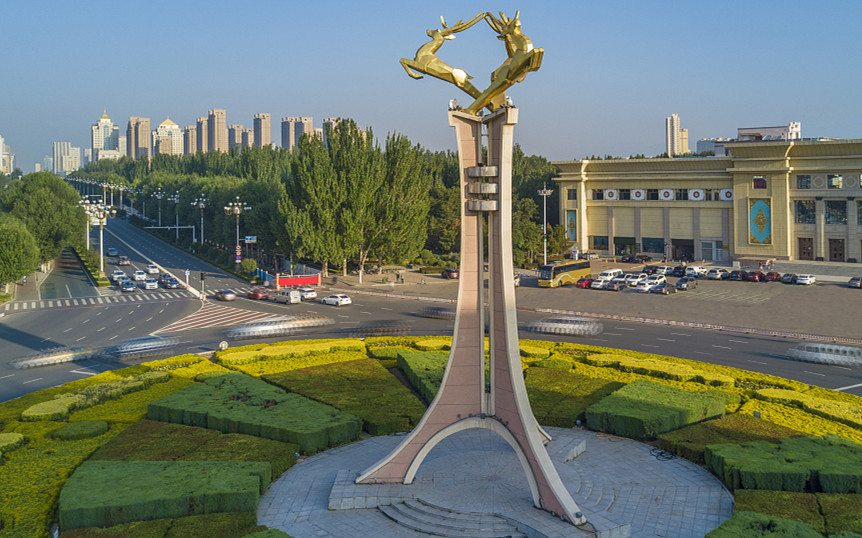Sacrificial ceremony to Hasar Khan
Hasar Memorial Hall, located at the foot of Shaorong Mountain, is considered to be a consecrated sacrificial site. Sacrificial offerings at hall are dedicated to the extraordinary character of Hasar Khan. It falls under the jurisdiction of Darhan Mumingan Joint Banner in Baotou of North China’s Inner Mongolia autonomous region.
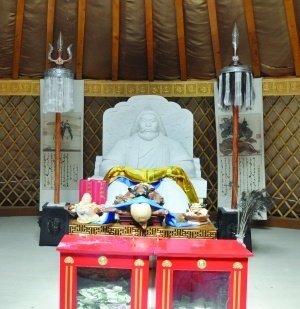 |
|
Hasar Memorial Hall [Photo/bt.wenming.cn] |
Hasar Khan, who is also known as Qasar, Khasar or Jo'chi Qasar, was one of Genghis Khan's brothers. He was a skilled archer and made great contributions to the expansion of the Mongol Empire during Genghis Khan's conquest of Asia and Europe.
In 1206, Hasar was nominated as a prince and minister of the military administration by Genghis Khan.
An annual sacrificial ceremony has been held ever since the start of the reign of Kublai Khan. The sacrifice, now held at the hall, is a way for those of Mongolian origin to worship to their ancestor and hero, Hasar Khan.
Hasar Memorial Hall is located between Hala Shaorong Mountain and Chahan Shaorong Mountain. Construction began on June 8, 1988 and was completed by the end of October. It spans an area of 90 square meters and features a nine-meter-high Mongolian yurt.
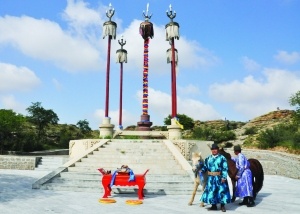 |
|
Exterior of Hasar Memorial Hall [Photo/bt.wenming.cn] |
Hasar Khan has many descendants now living in the Inner Mongolia autonomous region, Xinjiang Uygur autonomous region, and Qinghai, Jilin and Heilongjiang provinces. Many people all over China gather in the memorial hall to worship their ancestor every year, according to the deputy director of the Hasar Research Center.
The sacrificial ceremony and rites are an important part of Mongolian cultural heritage. The rites are known as “living fossils” of the study of Yuan Dynasty (1271-1368) culture.
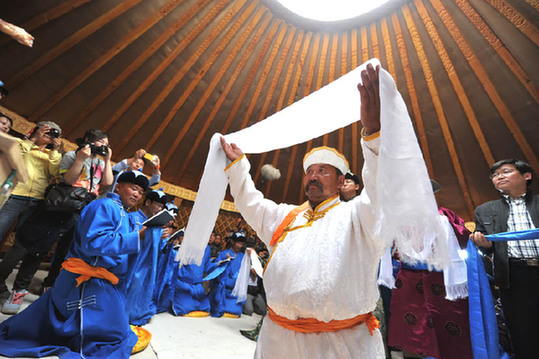 |
|
Sacrificial ceremony to Hasar [Photo/bt.wenming.cn] |
The ceremony was listed among the first batch of intangible cultural heritages in the Inner Mongolia autonomous region in 2007. Darhan Mumingan Joint Banner has since invested a large amount of capital in preserving the heritage and invited professionals to study and promote the sacrificial ceremony and activities.
In September 2013, the Darhan Mumingan Joint Banner was nominated as the “Hometown of Hasar sacrificial ceremony” by the Chinese Folk Literature and Art Association for its various sacrificial activities, grand rituals and unique nomadic culture of the 400-year-old ceremony.



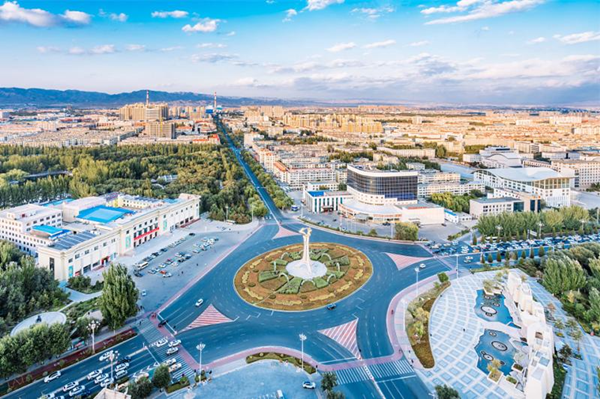
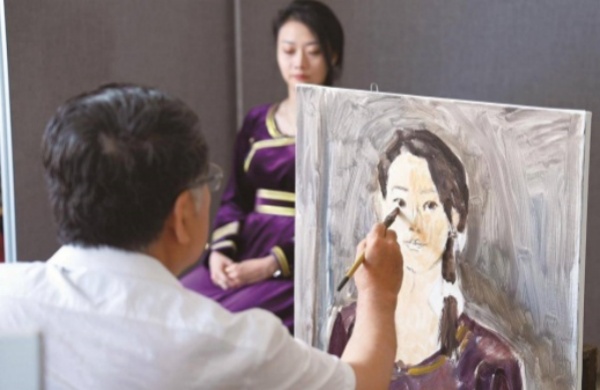
 Sketching and creation tour in Baotou
Sketching and creation tour in Baotou